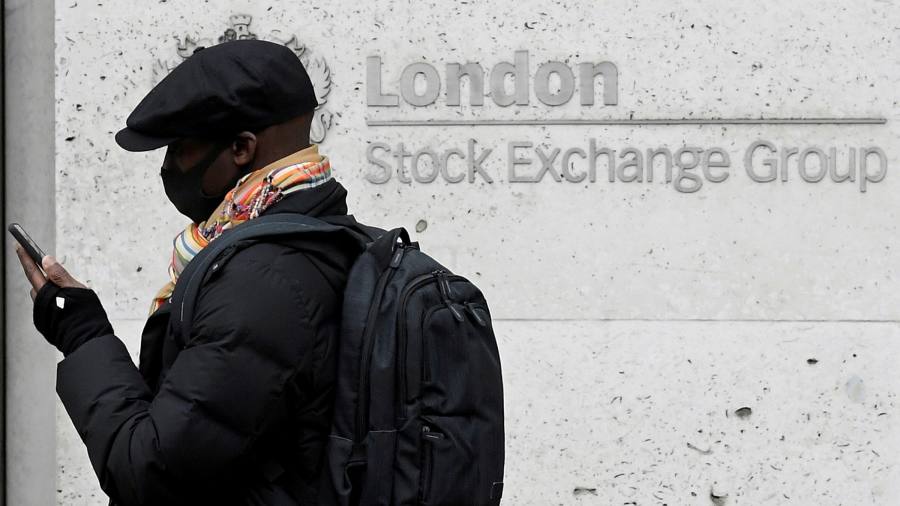[ad_1]
Shares in London Stock Exchange Group suffered their biggest daily fall in more than 20 years on Friday after the company unveiled higher-than-expected expenses to integrate data provider Refinitiv and prepare for the sale of Borsa Italiana.
The shares dropped 14 per cent to £81.24 after the LSE forecast it would spend £1bn this year to bed in its $27bn January acquisition of Refinitiv.
That deal is set to include the sale of the Italian stock exchange, needed for approval from European antitrust authorities.
The higher spending, consisting of £850m of capital expenditure and £150m of operating expenditure, prompted fears the LSE would fail to hit some of the deal’s financial targets until several years later than expected.
The purchase of Refinitiv, an information and trading group, has made the LSE one of the largest companies on the FTSE 100, with a market capitalisation of £44bn.
It will make the LSE more reliant on annual subscriptions from data and less exposed to uneven income from trading on markets.
However, the company agreed to sell Borsa Italiana, owner of the Milan stock exchange, to Euronext for €4.3bn to meet demands from regulators in Brussels. The deal is awaiting approval from other watchdogs but likely to complete by June.
David Schwimmer, chief executive, said he expected the deal to result in some job cuts but declined to be drawn further.
“A need to improve the resilience of the legacy Refinitiv tech platform, suggests the bulk of the incremental £150m operating expenditure investment will recur in 2022 and beyond,†said Andrew Coombs of Citigroup, who downgraded his rating to “neutral†from “buyâ€.
“We may have to wait until 2026 to reach the desired 50 per cent earnings before interest, tax, depreciation and amortisation margin target.â€
Anna Manz, LSE chief financial officer, described 2021 as “a transition year†and said the two companies, when separate entities, were already spending a combined £700m annually on its products and services.
“The additional piece [of £150m] is around the integration and getting out those cost savings and further synergies which will accelerate our top line,†she said.
Schwimmer also welcomed Lord Jonathan Hill’s report on the UK listings regime, which recommended authorities rewrite the rules to make it easier for shell companies known as special purpose acquisition vehicles, Spacs, to operate in London.
In February alone, a total of 174 Spacs filed or priced for expected gross proceeds of $56bn in New York, according to data from FactSet. There were none in the UK.
However, he warned there was “clearly some froth in the US market for Spacs, and some of that could end poorly for some of those opportunities or those investors. Spacs do have a role to play. It’s important that investors and market participants use them thoughtfully and carefully.â€
Full-year results for the year to December 31 did not include the Refinitiv deal. On a constant currency basis, total income rose 5 per cent to £2.4bn.
Revenues were driven largely by demand for clearing interest rate and currency swaps in London. Turnover at information services, its largest business, rose 3 per cent.
Operating profit was up 3 per cent to £755m. It proposed a final dividend of 51.7p, resulting in a 7 per cent increase in the full year dividend to 75p per share.
[ad_2]
Source link






